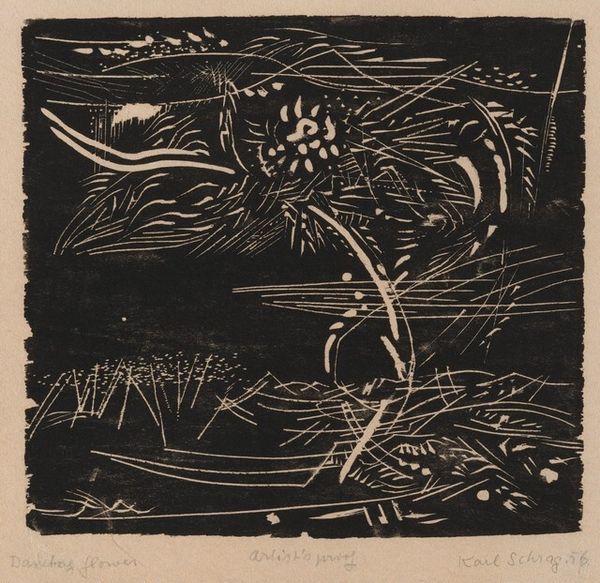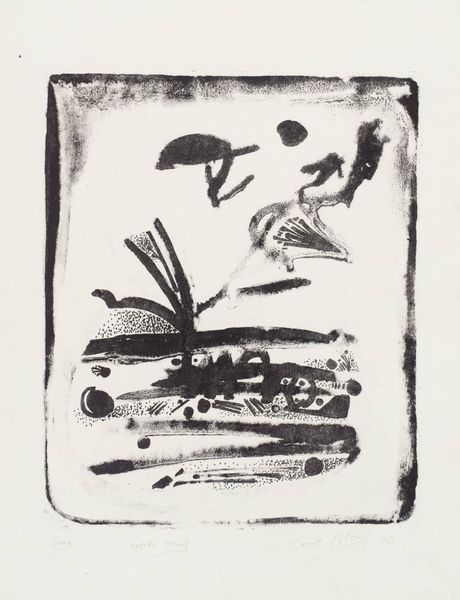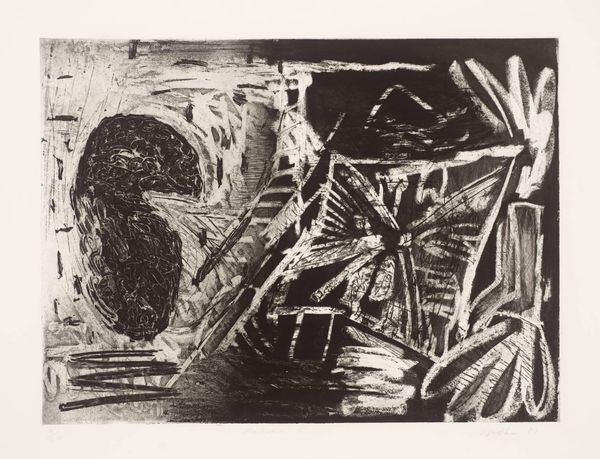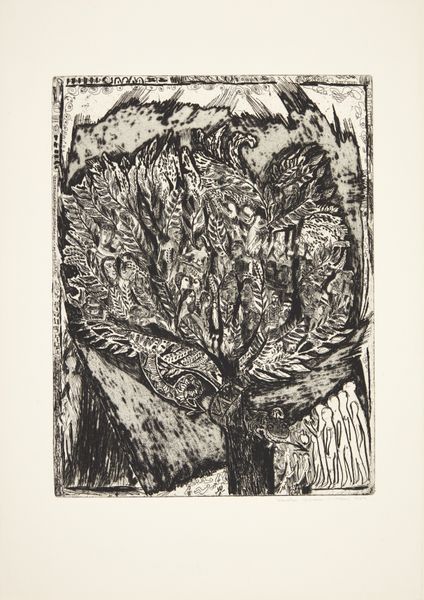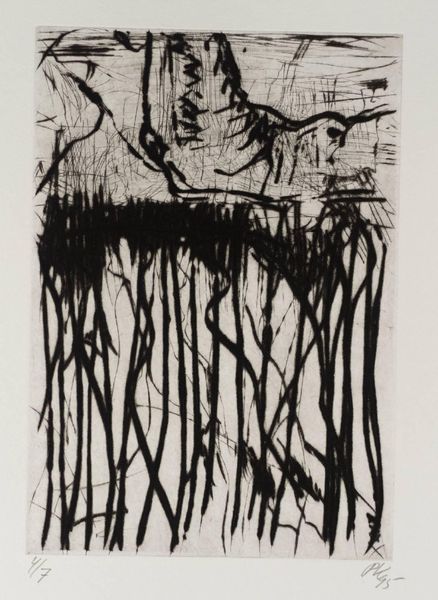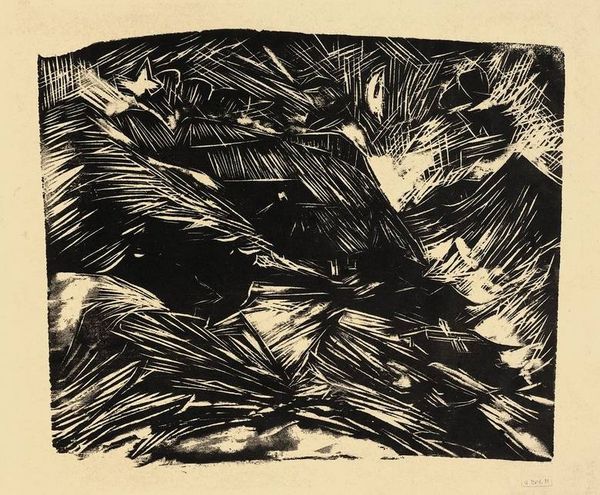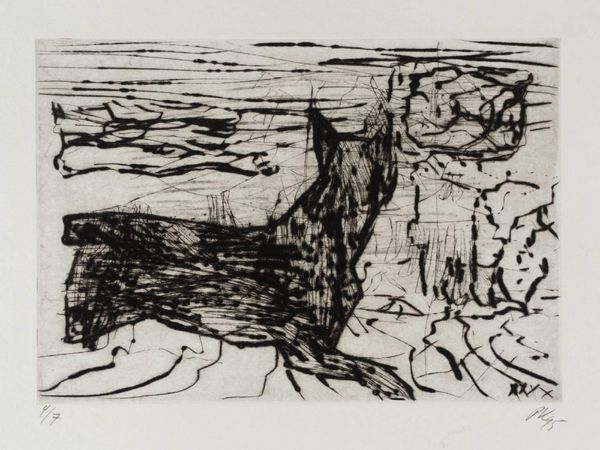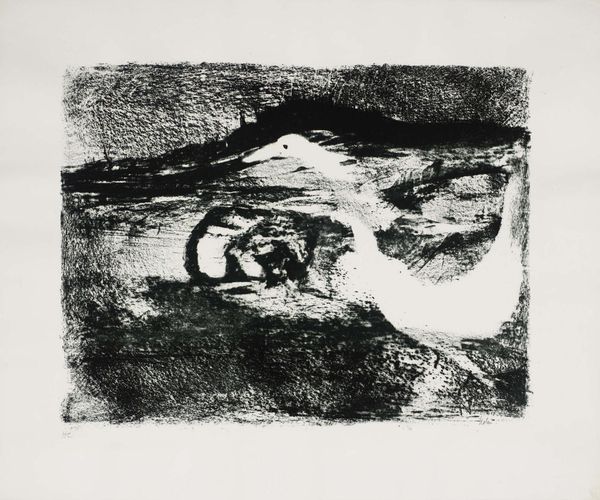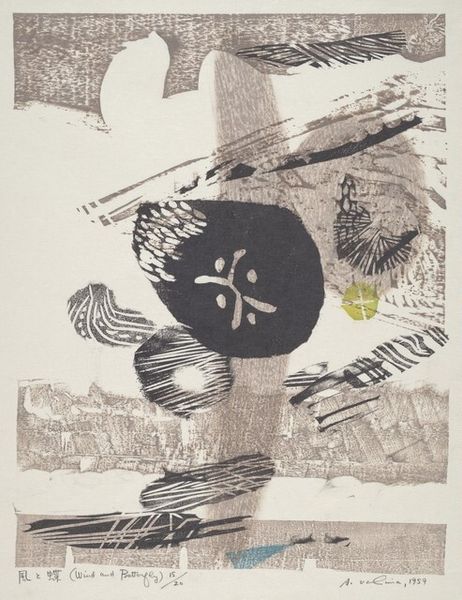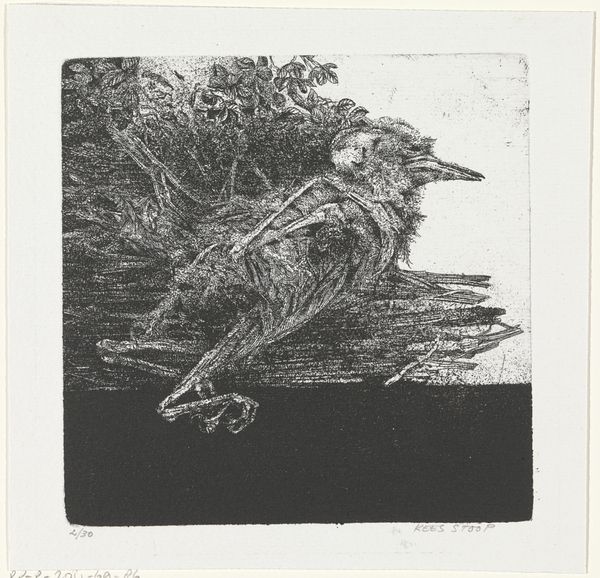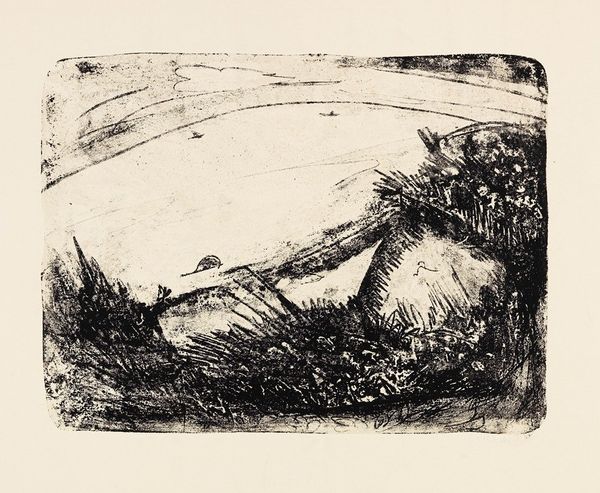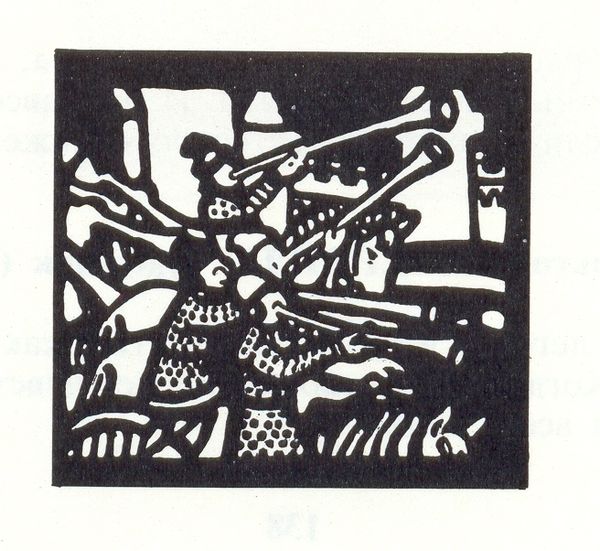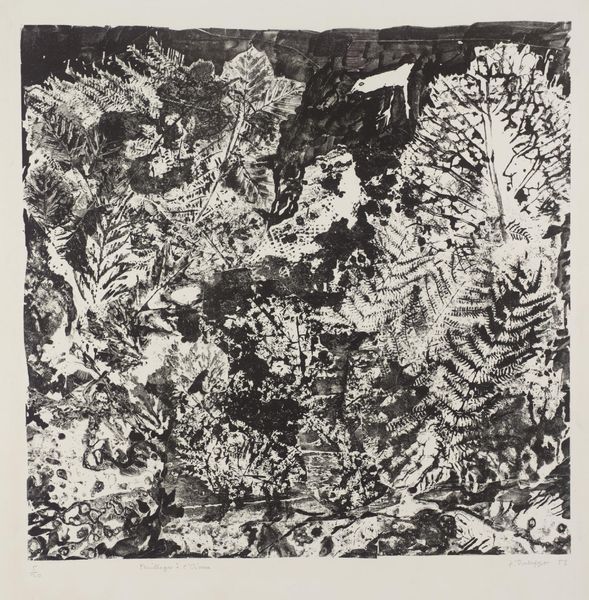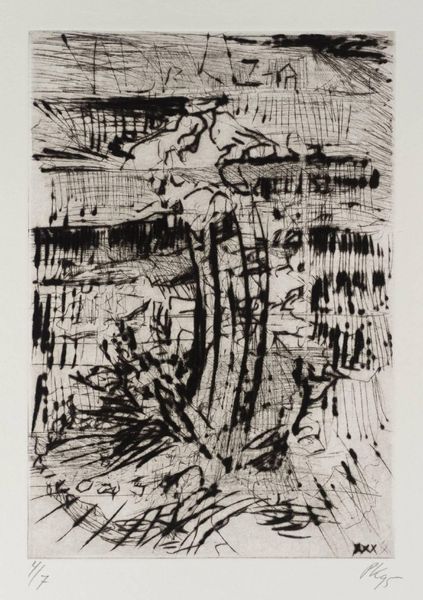
Dimensions: image: 285 x 248 mm
Copyright: © Tate | CC-BY-NC-ND 4.0 DEED, Photo: Tate
Curator: Cecil Collins's "Untitled" print presents us with a stark, dreamlike vision. Editor: My first impression is one of quiet melancholy, the contrasting dark and light areas create a strong emotional impact. Curator: Collins, born in 1908, often explored themes of innocence and the eternal. Look at how the rough texture of the printmaking process emphasizes the physicality of the artwork's creation. Editor: The reclining figure above, almost childlike, seems to oversee the bursting floral image below. Perhaps symbolic of a guardian spirit and nature’s unfolding? Curator: Indeed. The contrast between figure and flora may speak to the artist's interest in the relationship between humanity and the natural world, rendered through the labor of printmaking. Editor: The sparseness enhances that feeling of solitude, the black contrasting with the white as though representing opposing forces. A visual poem about life and death. Curator: A very succinct perspective! The materiality and making point to a wider social engagement through accessible, reproducible media. Editor: A poignant, symbolic landscape indeed. Curator: Materially and conceptually rich for such a small piece.
Comments
Join the conversation
Join millions of artists and users on Artera today and experience the ultimate creative platform.
tate 10 months ago
⋮
This lithograph depicts a nude woman lying horizontally on the ground, lifing the upper part of her body, so that her long hair falls down. Beneath her there is an ambiguous image, which might represent stars exploding across an expanse of dark sky. Collins explored many print-making techniques. Amongst his most powerful images are those created by means of lithography. This was the perfect vehicle of expression for much of Collins’s work since he could make prints from an image drawn directly. Morphet wrote that: ‘The improvisatory potential of lithography was specially suitable to Collins at a moment when he wished simultaneously to unwind, to experiment, and to explore new directions’ (Morphet, p.19).
